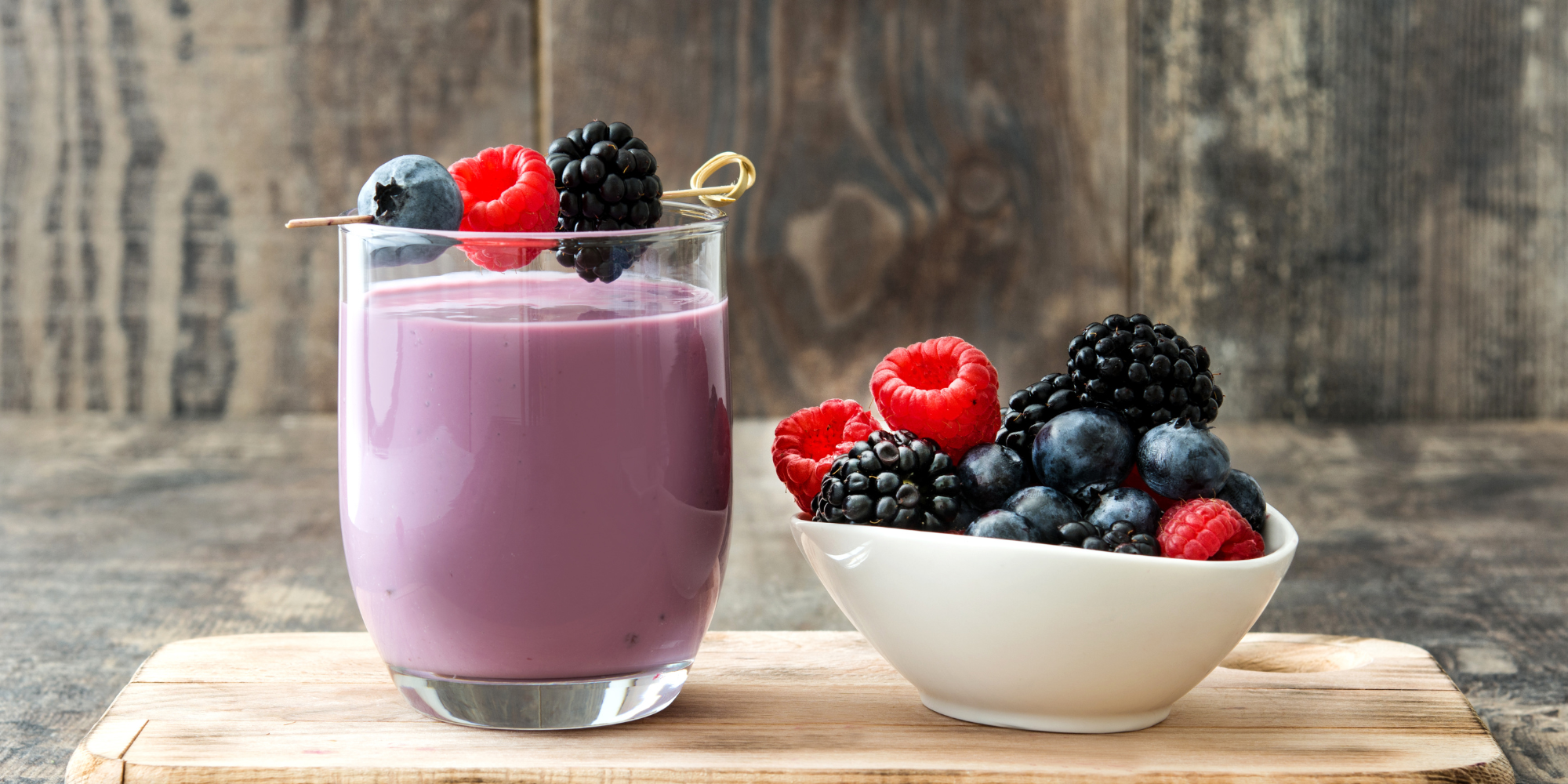Smoothie shops are popping up everywhere – shopping centers, airports, fitness clubs, and wellness spas. Their target consumer is one that subscribes to a healthy lifestyle and is looking for a quick meal or snack option to fit their busy and on-the-go schedule. At smoothie shops such as Smoothie King, you ‘ll find creatively named drinks, such as Pure Recharge®, Immune Builder®, Metabolism Boost®, The Activator®, and Muscle Punch®. Smoothie names such as these suggest they’ll enhance energy, immunity, weight loss, detoxification, recovery, muscle growth, joint health, and more.
Smoothies have a reputation of being healthy, made with fruits, vegetables, and other health-enhancing ingredients. But are they really healthy?
Smoothie Ingredients
Besides fruits and vegetables, below are some “enhancers” that are commonly used in smoothies.
- For energy and metabolism: caffeine, vitamin B12, gingko biloba
- For immune support: antioxidants, spirulina, vitamins and minerals
- For weight Loss: green tea, L-carnitine, fiber, cacao powder
- For muscle building: creatine monohydrate, L-glutamine, taurine, protein powder
- For digestion support: fiber, seeds, wheatgrass, yogurt
- For joint health: collagen peptides
Effectiveness of Enhancers in Smoothies
Several of the above-listed “enhancers” are beneficial or even essential for our health. However, the form in which these isolated nutrients are consumed makes a big difference. For example, it’s well known that the antioxidant vitamin C protects our cells from damage that can lead to cancer and heart disease. However, research tells us there’s a big difference between consuming synthetic vitamin C compared to vitamin C in whole food. Although both might be absorbed similarly, vitamin C supplements lack a variety of other nutrients and phytochemicals that would be found in a whole food source. That variety is the basis of food synergy, the concept that nutrients work better together than distilled into isolated parts. Those enhancers in your smoothies lack food synergy which may hinder the health-related results you’re looking for.
Managing Weight with Smoothies
For those trying to maintain or lose weight, smoothies are not ideal for a few reasons:
- Smoothies are typically high in calories. This means you’re unknowingly sipping lots of calories through your straw. The average smoothie contains about 350 calories, but they can range from 225 -1035 calories per serving. Don’t be fooled by a smoothie that boasts a lower calorie count. Calories are normally listed per 8 ounces and many smoothies contain 20 – 40 ounces.
- Smoothies may not fill you up. Liquid calories do not typically provide the same degree of fullness compared to whole foods. Smoothies can fail to stimulate satiety cues initiated from actually chewing our food. The advantage of chewing our food is that it promotes saliva and gastric juice production that expands the stomach and makes you feel full. A study at Purdue University looked at the effects of food form on appetite. Three different types of apples were used: whole apples, applesauce, and apple juice. The whole apple reduced hunger the most and the apple juice reduced hunger the least. In fact, the participants that had the chewable apple weren’t hungry for almost an hour later compared to the group who had the same number of calories in apple juice.
- Some smoothies are high in added sugars. This can set you up for being at higher risk for heart disease, diabetes, and obesity. Of course, smoothies with fruits, veggies, and nonfat dairy will contain some naturally occurring sugars along with healthy phytonutrients. The issue is the added sugars found in many smoothies. For example, the 40 ounce “The Hulk™ Strawberry” smoothie at Smoothie King® contains 1,770 calories and 256 grams of sugar (183 grams of added sugar). These 183 grams of added sugar are WAY more than what the American Heart Association recommends. For added sugar, the American Heart Association recommends no more than 36 grams for men and 25 grams for women per day.
As a rule, you might guess that I typically do not recommend smoothies. However, they CAN make sense for some people - like those trying to gain weight and athletes or active individuals who need the extra fuel. If smoothies are warranted, I recommend including some combination of nutrient-rich fruits and veggies loaded with fiber and antioxidants, as well as some nonfat yogurt for protein and probiotics. Also, it’s best to make smoothies yourself. This way, you can avoid any added sugars and save a pretty penny.
Smoothly,
Kerri
_____________
*Isolated nutrients can be beneficial in a state of insufficiency, but supplements should be taken when justified with lab work.




